
Find Help
More Items From Ergsy search
-

What are the side effects of bowel cancer treatment?
Relevance: 100%
-
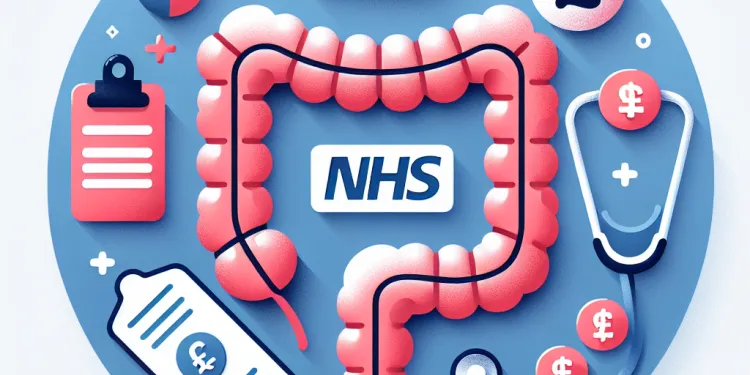
What treatment options are available for bowel cancer?
Relevance: 71%
-

What are the side effects of Paillon treatment?
Relevance: 65%
-

What is Bowel Cancer?
Relevance: 63%
-

What are the side effects of prostate cancer surgery?
Relevance: 62%
-

How does exercise impact bowel cancer progression?
Relevance: 59%
-

Can exercise help slow down the progression of bowel cancer?
Relevance: 58%
-

What types of exercise are beneficial for bowel cancer patients?
Relevance: 57%
-
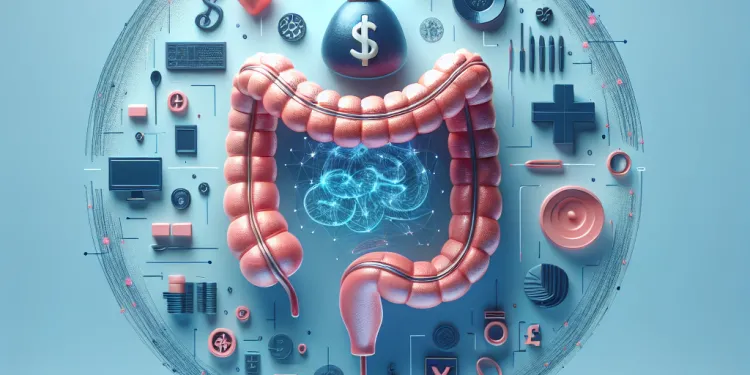
How common is bowel cancer?
Relevance: 57%
-
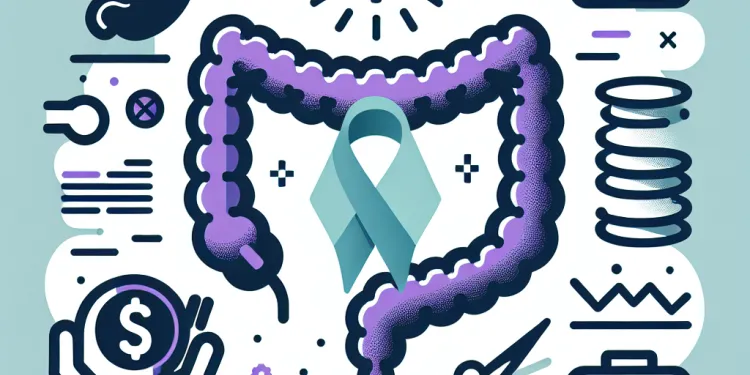
What is the survival rate for bowel cancer?
Relevance: 57%
-

Can bowel cancer be prevented?
Relevance: 57%
-

Can exercise help slow down the progression of bowel cancer?
Relevance: 57%
-

Are there specific benefits of exercise for bowel cancer survivors?
Relevance: 57%
-

What support is available for individuals diagnosed with bowel cancer?
Relevance: 56%
-

Bowel cancer - Symptoms and signs to look out for
Relevance: 55%
-

Why is there a surge in bowel cancer?
Relevance: 55%
-

How is bowel cancer diagnosed?
Relevance: 55%
-

How is the stage of bowel cancer determined?
Relevance: 54%
-

Can bowel cancer spread to other parts of the body?
Relevance: 52%
-

Is diet linked to the rise in bowel cancer?
Relevance: 52%
-

What are the risk factors for bowel cancer?
Relevance: 52%
-

How does increased screening impact bowel cancer statistics?
Relevance: 51%
-

Learn about bowel cancer (British Sign Language version)
Relevance: 51%
-
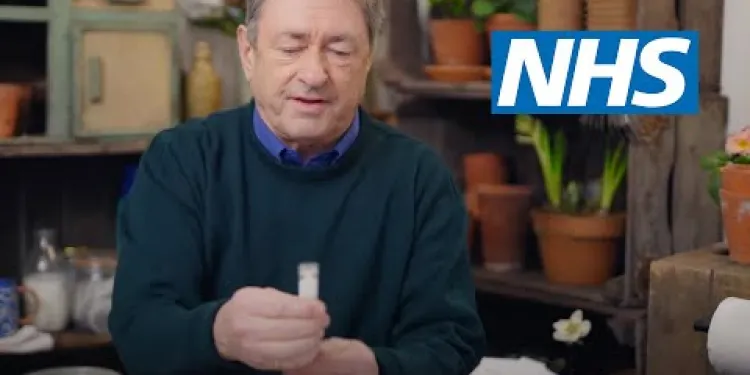
Bowel cancer screening: Alan Titchmarsh and Tommy Walsh | NHS
Relevance: 51%
-

How does obesity affect bowel cancer rates?
Relevance: 51%
-

Bowel Cancer
Relevance: 51%
-

Taking a Genetic Family History - The Conversation (Bowel Cancer)
Relevance: 50%
-

What factors are contributing to the increase in bowel cancer cases?
Relevance: 49%
-

Can exercise help with symptoms of bowel cancer treatment?
Relevance: 49%
-

Can lifestyle changes help reduce bowel cancer risk?
Relevance: 49%
-

Are younger people being diagnosed with bowel cancer more frequently?
Relevance: 48%
-

What is Paillon treatment for cancer?
Relevance: 48%
-

How to do the FIT bowel cancer screening test | Cancer Research UK
Relevance: 48%
-
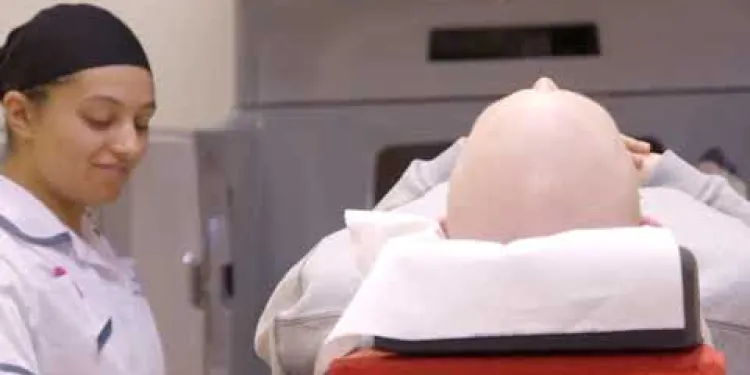
What is Radiotherapy, and its use in treatment for cancers?
Relevance: 48%
-

What lifestyle changes can help lower the risk of bowel cancer?
Relevance: 48%
-

What factors determine the treatment plan for prostate cancer?
Relevance: 48%
-
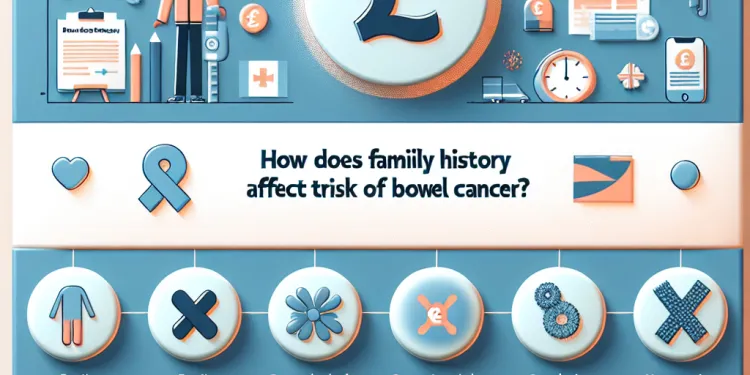
How does family history affect the risk of bowel cancer?
Relevance: 48%
-

What role does diet play in the risk of developing bowel cancer?
Relevance: 47%
-

What is active surveillance in prostate cancer treatment?
Relevance: 47%
-

What are the common side effects of Abiraterone?
Relevance: 46%
Side Effects of Bowel Cancer Treatment
Treatment for bowel cancer often involves a combination of surgery, chemotherapy, and radiotherapy. Each treatment modality may have its own set of side effects, and it is important for patients to be informed about these potential issues. Understanding the side effects can help patients manage them effectively and improve their quality of life during and after treatment.
Surgical Side Effects
Surgery is a common treatment for bowel cancer, particularly if the cancer is detected early. Post-surgical side effects can include pain and discomfort in the area where surgery was performed. Patients may also experience fatigue and a temporary loss of appetite. In addition, bowel habits may change, leading to symptoms such as diarrhoea, constipation, or bowel incontinence. These symptoms can persist as the body adjusts after surgery, but they often improve over time.
There is also a risk of developing a stoma, a colostomy or ileostomy, where an opening is made on the abdomen to allow waste to exit the body. While this is sometimes temporary, it can significantly impact a patient’s lifestyle and require adjustments.
Chemotherapy Side Effects
Chemotherapy drugs can lead to a range of side effects due to their impact on healthy, rapidly-dividing cells. Common side effects include nausea and vomiting, which are often managed with anti-nausea medications. Hair loss and increased vulnerability to infections due to reduced white blood cell counts are also possible.
Patients might experience oral ulcers, leading to discomfort and difficulty eating. Other possible side effects include fatigue, hand-foot syndrome, where palms and soles can become red and sore, and peripheral neuropathy, which manifests as tingling or numbness in extremities.
Radiotherapy Side Effects
For patients undergoing radiotherapy, side effects are typically localized to the area being treated. Common effects include skin irritation or changes in the treatment area, such as redness, soreness, or peeling. Patients may also experience fatigue that persists throughout treatment.
The radiation can also lead to changes in bowel habits, with symptoms similar to those experienced post-surgery, such as diarrhoea. In some cases, patients may experience bladder irritation or urinary symptoms.
Managing Side Effects
Healthcare providers aim to manage side effects with supportive treatments, lifestyle changes, and medication adjustments. It is crucial for patients to communicate any side effects to their medical team to tailor management approaches effectively. Nutritional support and psychological counselling may also be beneficial in managing the emotional and physical challenges during treatment.
Understanding the possible side effects and how to manage them can equip patients and their families with the tools needed to navigate bowel cancer treatment more effectively, improving overall outcomes and maintaining a better quality of life.
Side Effects of Bowel Cancer Treatment
If you have bowel cancer, you might need treatments like surgery, chemotherapy, or radiotherapy. Each treatment can cause different side effects, and it's important to know what they are. This can help you handle them better and feel more comfortable during and after treatment.
Surgical Side Effects
Surgery is a common way to treat bowel cancer, especially if it's caught early. After surgery, you might feel pain where the operation happened. You could also feel really tired and not want to eat much. Your bathroom habits might change too - you could have diarrhoea, constipation, or trouble controlling when you need to go. These might get better as your body heals.
Sometimes, surgery means you need a stoma, which is a special opening on your tummy to help waste leave your body. This can be a big change in your life, but sometimes it's only needed for a little while.
Chemotherapy Side Effects
Chemotherapy uses strong medicine to fight cancer, but it can also affect healthy cells. This might make you feel sick or throw up, but there are medicines to help stop this. You might lose your hair or catch colds more easily because your body has fewer white blood cells.
You might get sores in your mouth, making it hard to eat. Other effects can include feeling very tired, having red and sore hands and feet, and feeling tingling or numbness in your fingers and toes.
Radiotherapy Side Effects
Radiotherapy is another treatment option, and its side effects are usually where you get the treatment. Your skin might get red, sore, or peel. You might also feel very tired.
The treatment might change how your bowels work, like causing diarrhoea. You might also have issues with your bladder, like needing to go to the bathroom more often.
Managing Side Effects
Doctors try to help with side effects using other treatments and changes in your daily routine. It's important to tell your doctor about any side effects you have, so they can help find ways to make things better. Eating well and talking to someone about how you feel can also help.
Knowing about these side effects and how to handle them means you and your family can feel more prepared during your treatment. This can help you feel better overall and keep your spirits up.
Frequently Asked Questions
What are the common side effects of bowel cancer surgery?
Common side effects of bowel cancer surgery include pain, fatigue, bowel changes, and risk of infection.
Can chemotherapy for bowel cancer cause hair loss?
Yes, chemotherapy for bowel cancer can cause hair loss, although the extent varies depending on the drug regimen.
What are the gastrointestinal side effects of bowel cancer treatment?
Gastrointestinal side effects may include nausea, vomiting, diarrhea, constipation, and changes in appetite.
Is fatigue a common side effect of bowel cancer treatment?
Yes, fatigue is a very common side effect experienced by many patients undergoing bowel cancer treatment.
How does radiation therapy for bowel cancer affect the skin?
Radiation therapy can cause skin irritation, redness, and peeling in the area being treated.
Can bowel cancer treatment lead to changes in bowel habits?
Yes, treatment can lead to changes such as increased frequency, urgency, and consistency of bowel movements.
What are the potential side effects of targeted therapy for bowel cancer?
Potential side effects of targeted therapy include high blood pressure, fatigue, mouth sores, and liver function changes.
Are there any psychological side effects of bowel cancer treatment?
Yes, patients may experience anxiety, depression, and stress due to the impact of the disease and treatment.
Can bowel cancer treatment affect fertility?
Some treatments may affect fertility, so it is important to discuss fertility preservation options with your doctor.
What are the cardiovascular side effects of certain bowel cancer treatments?
Some treatments can increase the risk of high blood pressure, heart attack, and blood clots.
How does bowel cancer surgery impact digestion?
Surgery may affect digestion by altering the digestive tract, leading to changes in nutrient absorption and bowel habits.
What side effects should I report immediately to my healthcare provider?
Severe pain, signs of infection, unusual bleeding, and significant changes in bowel habits should be reported immediately.
Does bowel cancer treatment cause neuropathy?
Some chemotherapy drugs can cause neuropathy, resulting in tingling, numbness, and pain in the hands and feet.
Can bowel cancer treatment lead to weight changes?
Yes, patients may experience weight loss or gain due to changes in appetite, metabolism, and lifestyle.
How long do the side effects of bowel cancer treatment last?
The duration of side effects varies; some may resolve quickly, while others can last months or be permanent.
Are there strategies to manage nausea and vomiting during treatment?
Yes, medications like antiemetics, dietary adjustments, and hydration can help manage these symptoms.
What impact does bowel cancer treatment have on mental health?
The stress and lifestyle changes during treatment can lead to anxiety and depression; seeking support is important.
Can immunotherapy for bowel cancer cause side effects?
Yes, immunotherapy can lead to side effects such as skin rashes, diarrhea, liver problems, and fatigue.
What are some less common side effects of bowel cancer treatment?
Less common side effects include allergic reactions to medications, changes in taste, and insomnia.
How can side effects of bowel cancer treatment be managed?
Side effects can be managed with medications, lifestyle changes, dietary adjustments, and support from healthcare providers.
What happens to your body after bowel cancer surgery?
When you have an operation for bowel cancer, your body might feel different. These are some things that could happen:
- You might feel tired and need more rest.
- You could have a sore tummy.
- You might need to go to the toilet more often.
- You may feel like you don't want to eat much.
Here are some things that can help you feel better:
- Try to sleep well at night.
- Eat small, healthy meals.
- Ask your doctor for medicine if you feel sore.
- Let someone know if you feel very worried or sad.
After bowel cancer surgery, some common effects are:
- You might feel pain.
- You could feel very tired.
- Your bowel movements might change.
- There is a chance of getting an infection.
Does treatment for bowel cancer make hair fall out?
Chemotherapy is a strong medicine that can help fight cancer. But, it can also make your hair fall out. Not everyone loses their hair, but some people might.
If you're worried about losing your hair, talk to your doctor or nurse. They can give you advice and help you feel better about it.
Here are some things you can do to feel better:
- Wear a hat, scarf, or wig.
- Talk to someone you trust about how you feel.
- Look for support groups where you can meet people going through the same thing.
Yes, medicine to treat bowel cancer can make you lose hair. How much hair you lose depends on the kind of medicine you take.
What tummy problems can happen with bowel cancer treatment?
When people get treatment for bowel cancer, they might have tummy troubles. Here are some things that can happen:
- Tummy Ache: Your belly might hurt.
- Feeling Sick: You might feel like throwing up.
- Diarrhea: You might go to the bathroom a lot.
- Constipation: It might be hard to poop.
If you find these things hard, you can try using picture helpers or simple charts to understand better. You can also ask someone you trust to explain things. It's okay to ask for help!
Your tummy might feel sick, or you could throw up. You might have runny poop (diarrhea) or find it hard to poop (constipation). You could also feel more or less hungry than usual.
To help, try eating small meals and drinking plenty of water. If you feel sick a lot, tell a grown-up or a doctor. They can help you feel better.
Does bowel cancer treatment make you feel very tired?
Yes, feeling very tired is a common side effect for many people getting bowel cancer treatment.
What happens to the skin during bowel cancer radiation treatment?
Radiation treatment for bowel cancer can cause changes to your skin.
What might you notice?
- Your skin could get red and sore, like a sunburn.
- Your skin might feel dry or itchy.
- Sometimes the skin can peel or blister.
How to take care of your skin:
- Keep the skin clean and dry.
- Use gentle, unscented soaps and lotions.
- Wear soft, loose clothing.
If your skin gets sore, talk to your doctor or nurse. They can help you feel better.
Radiation therapy can make your skin sore, red, and peel where you get the treatment.
Can bowel cancer treatment change how you go to the toilet?
Yes, treatment can change how often you need to go to the toilet, how quickly you need to go, and what your poo is like.
What can happen to your body when you take medicine for bowel cancer?
Taking this medicine can sometimes make you feel unwell. You might get:
- High blood pressure, which is when your blood pushes too hard against your veins.
- Tiredness, which means feeling very sleepy or worn out.
- Mouth sores, which are painful spots inside your mouth.
- Changes in how your liver works. The liver is a part of your body that helps clean your blood.
It's helpful to talk to your doctor if you feel any of these. Using a diary to keep track of how you feel can be a good idea.
Can bowel cancer treatment affect how we feel?
Some treatments for bowel cancer can affect our feelings and mood. These feelings are called side effects.
It's important to talk to someone if you feel sad or worried. This can help you feel better.
Using tools like pictures or talking to a friend can make it easier to understand and share your feelings.
Yes, people can feel worried, sad, or stressed because of the sickness and the treatments they have to go through.
Can treating bowel cancer make it harder to have babies?
Treatments for bowel cancer can sometimes make it difficult to have children. Talk to your doctor about this if you are worried.
Here are some things you can do:
- Ask your doctor questions. They can help explain what might happen.
- You can also talk to a counselor. They can help you with your feelings.
- Write down what your doctor says. Ask a friend or family member to help if you want.
Remember, there are people who can support you.
Some treatments can make it hard to have babies later. Talk to your doctor about ways to keep your chance to have babies in the future.
What heart problems can happen from some bowel cancer treatments?
Some treatments can make it more likely to get high blood pressure, a heart attack, or blood clots.
Using tools like pictures or simple apps can help understand more.
How does bowel cancer surgery affect how you digest food?
Having an operation can change the way your tummy works. It might make it harder for your body to get the goodness from food. It can also change how often you need to go to the toilet.
What problems must I tell my doctor about right away?
If it really hurts a lot, you see signs of an infection, there is unusual bleeding, or your toilet habits change a lot, tell someone right away.
Does bowel cancer treatment make nerves feel bad?
Some treatments for bowel cancer can hurt your nerves. This can make your hands and feet tingle or feel numb. It might be hard to feel things the way you used to.
If you feel this way, tell your doctor. They can help you manage it.
Tools to help:
- Wear soft gloves or socks to protect your skin.
- Use a warm blanket to keep your body cozy.
- Move carefully to avoid falls.
Some cancer medicines can hurt the nerves. This can make your hands and feet tingle, feel numb, and hurt.
Can bowel cancer treatment change your weight?
Yes, people might lose or gain weight because they feel more or less hungry, their bodies use energy differently, or their daily habits change.
How long will the side effects from bowel cancer treatment last?
Side effects can last for different times. Some go away quickly, but others might last for a long time or even forever.
How can I stop feeling sick and throwing up during treatment?
Yes, medicines can help with these symptoms. Eating the right foods and drinking plenty of water can help too.
How does bowel cancer treatment affect your feelings and thoughts?
When someone is getting treatment, they might feel worried and sad. This is because of stress and changes in daily life. It is important for them to get help from others.
Can treatment for bowel cancer have side effects?
Yes, immunotherapy can cause side effects. These can include skin rashes, diarrhea, liver problems, and feeling very tired.
What are some of the less common side effects of bowel cancer treatment?
Some side effects of bowel cancer treatment do not happen very often. Here are a few:
- Feeling very tired all the time.
- Having a sore mouth or sore throat.
- Hands or feet might feel tingly or numb.
- Skin could change color or feel sensitive.
If you are worried about side effects, here are some things that might help:
- Talk to your doctor or nurse.
- Write down your symptoms in a notebook.
- Try relaxation techniques like deep breathing.
- Ask for support from family or friends.
Some side effects do not happen very often. These include:
- Being allergic to the medicine. This means your body does not like the medicine and can make you feel unwell.
- Your sense of taste might change. Food may taste different than usual.
- Having trouble sleeping, or insomnia. This means you find it hard to sleep at night.
If you have questions or worries, talk to a doctor or nurse. It can help to use tools like a diary to keep track of how you feel. This way, you can share this information with your healthcare person.
How can side effects of bowel cancer treatment be managed?
Bowel cancer treatment can make you feel unwell. Here are some tips to help:
- Ask your doctor: Talk to your doctor or nurse. They can give you medicine to feel better.
- Rest: Get plenty of sleep and take breaks during the day.
- Eat well: Try eating small meals. Foods like fruits, vegetables, and whole grains can help.
- Stay hydrated: Drink lots of water. It helps your body stay strong.
- Stay active: Gentle walks or stretches can make you feel better.
- Ask for help: Family and friends can help with chores or shopping.
- Support groups: Talking to others who have bowel cancer can be helpful. You can share tips and support each other.
These ideas can help you feel better. Always listen to your body and tell your doctor how you feel.
You can handle side effects by taking medicine, changing your lifestyle, eating different foods, and getting help from doctors and nurses.
Useful Links
This website offers general information and is not a substitute for professional advice.
Always seek guidance from qualified professionals.
If you have any medical concerns or need urgent help, contact a healthcare professional or emergency services immediately.
- Ergsy carfully checks the information in the videos we provide here.
- Videos shown by Youtube after a video has completed, have NOT been reviewed by ERGSY.
- To view, click the arrow in centre of video.
- Most of the videos you find here will have subtitles and/or closed captions available.
- You may need to turn these on, and choose your preferred language.
- Go to the video you'd like to watch.
- If closed captions (CC) are available, settings will be visible on the bottom right of the video player.
- To turn on Captions, click settings .
- To turn off Captions, click settings again.
More Items From Ergsy search
-

What are the side effects of bowel cancer treatment?
Relevance: 100%
-

What treatment options are available for bowel cancer?
Relevance: 71%
-

What are the side effects of Paillon treatment?
Relevance: 65%
-

What is Bowel Cancer?
Relevance: 63%
-

What are the side effects of prostate cancer surgery?
Relevance: 62%
-

How does exercise impact bowel cancer progression?
Relevance: 59%
-

Can exercise help slow down the progression of bowel cancer?
Relevance: 58%
-

What types of exercise are beneficial for bowel cancer patients?
Relevance: 57%
-

How common is bowel cancer?
Relevance: 57%
-

What is the survival rate for bowel cancer?
Relevance: 57%
-

Can bowel cancer be prevented?
Relevance: 57%
-

Can exercise help slow down the progression of bowel cancer?
Relevance: 57%
-

Are there specific benefits of exercise for bowel cancer survivors?
Relevance: 57%
-

What support is available for individuals diagnosed with bowel cancer?
Relevance: 56%
-

Bowel cancer - Symptoms and signs to look out for
Relevance: 55%
-

Why is there a surge in bowel cancer?
Relevance: 55%
-

How is bowel cancer diagnosed?
Relevance: 55%
-

How is the stage of bowel cancer determined?
Relevance: 54%
-

Can bowel cancer spread to other parts of the body?
Relevance: 52%
-

Is diet linked to the rise in bowel cancer?
Relevance: 52%
-

What are the risk factors for bowel cancer?
Relevance: 52%
-

How does increased screening impact bowel cancer statistics?
Relevance: 51%
-

Learn about bowel cancer (British Sign Language version)
Relevance: 51%
-

Bowel cancer screening: Alan Titchmarsh and Tommy Walsh | NHS
Relevance: 51%
-

How does obesity affect bowel cancer rates?
Relevance: 51%
-

Bowel Cancer
Relevance: 51%
-

Taking a Genetic Family History - The Conversation (Bowel Cancer)
Relevance: 50%
-

What factors are contributing to the increase in bowel cancer cases?
Relevance: 49%
-

Can exercise help with symptoms of bowel cancer treatment?
Relevance: 49%
-

Can lifestyle changes help reduce bowel cancer risk?
Relevance: 49%
-

Are younger people being diagnosed with bowel cancer more frequently?
Relevance: 48%
-

What is Paillon treatment for cancer?
Relevance: 48%
-

How to do the FIT bowel cancer screening test | Cancer Research UK
Relevance: 48%
-

What is Radiotherapy, and its use in treatment for cancers?
Relevance: 48%
-

What lifestyle changes can help lower the risk of bowel cancer?
Relevance: 48%
-

What factors determine the treatment plan for prostate cancer?
Relevance: 48%
-

How does family history affect the risk of bowel cancer?
Relevance: 48%
-

What role does diet play in the risk of developing bowel cancer?
Relevance: 47%
-

What is active surveillance in prostate cancer treatment?
Relevance: 47%
-

What are the common side effects of Abiraterone?
Relevance: 46%


